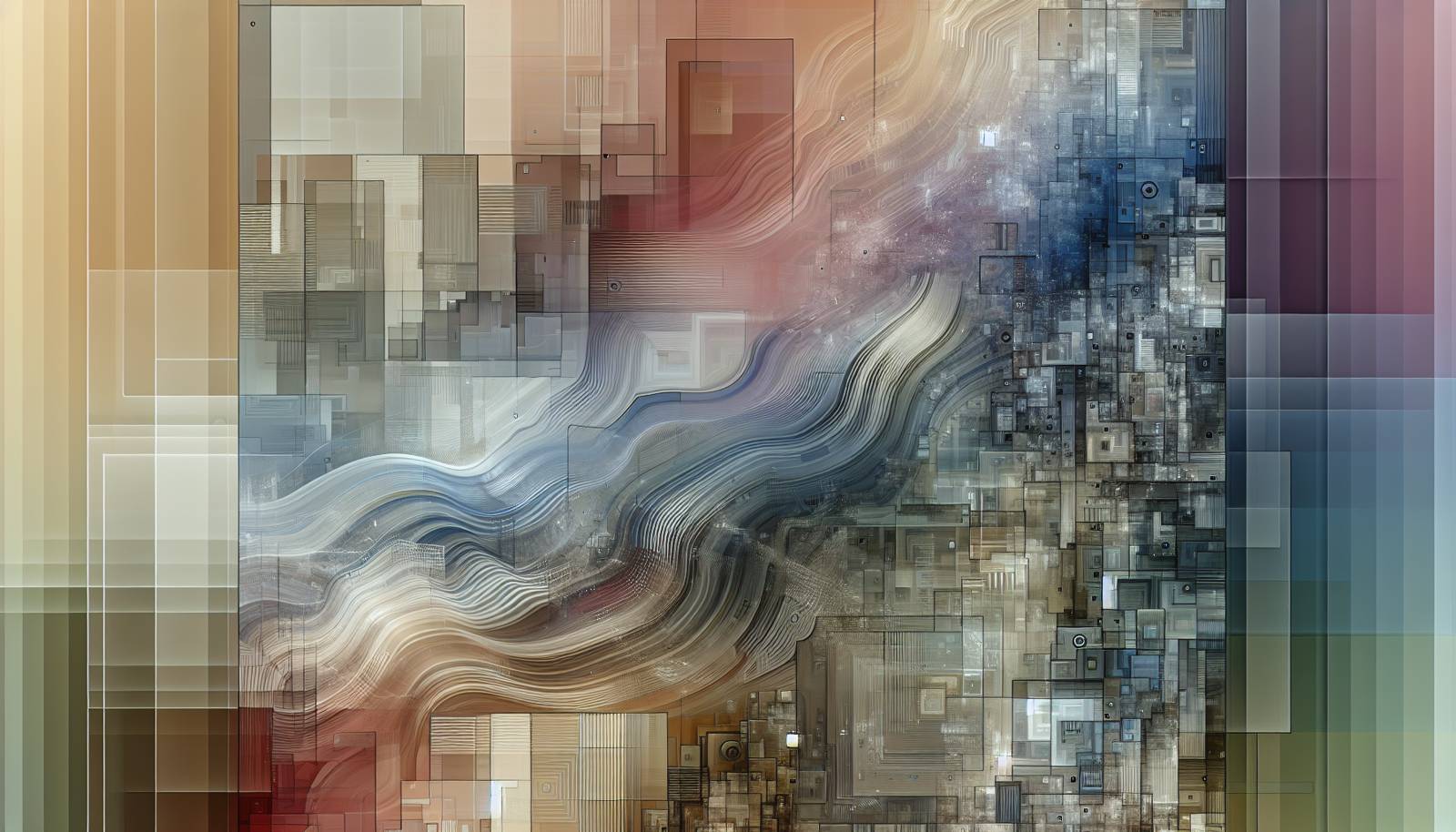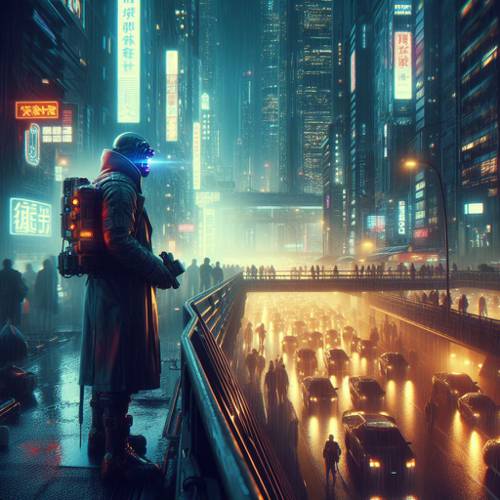
FAQ About The Evolution of Cyberfiction in Modern Literature

What is cyberfiction in modern literature?
Cyberfiction, often synonymous with cyberpunk, is a subgenre of science fiction that explores themes centered around computers, networks, and technology's impact on society. These stories often depict dystopian futures where cybernetic augmentations, artificial intelligence, and megacorporations dominate, reflecting concerns and hopes about technological advancements.

How has cyberfiction evolved over the years?
Cyberfiction has evolved significantly since its inception in the early 1980s. Initially focusing on the gritty, high-tech worlds envisioned by authors like William Gibson, it has expanded to include a more diverse range of themes and settings. Modern cyberfiction often addresses current technological concerns such as cybersecurity, data privacy, and the ethical implications of AI, reflecting broader societal shifts toward digitization and globalization.

Who are some notable authors in the cyberfiction genre?
Notable authors in the cyberfiction genre include William Gibson, known for his seminal work "Neuromancer," Neal Stephenson, for novels like "Snow Crash," and Philip K. Dick, whose works explore the blurred lines between humans and machines. These authors have helped shape the genre, influencing how technology and its effects are depicted in literature.

What impact has cyberfiction had on modern storytelling?
Cyberfiction has had a profound impact on modern storytelling by introducing complex narratives that intertwine technology with human experience. It has influenced genres beyond science fiction, including thrillers and dramas, and has paved the way for discussions on the ethical and philosophical implications of tech-driven futures. Its themes are increasingly relevant as society grapples with rapid technological change.

How does cyberfiction reflect societal changes in the digital age?
Cyberfiction reflects societal changes by addressing the socio-political and economic impacts of the digital revolution. It tackles issues like surveillance, digital identity, and the consequences of living in a hyper-connected world. By exploring these themes, cyberfiction provides a lens through which readers can examine current and future societal trends and their potential consequences.

What are common themes found in cyberfiction?
Common themes in cyberfiction include the intersection of technology and humanity, the rise and impact of artificial intelligence, corporate control versus individual autonomy, virtual reality, and identity in digital environments. These themes often explore the dark side of technological advancement, shining a light on the potential pitfalls of unchecked innovation.

How has digital technology influenced the development of cyberfiction?
Digital technology has greatly influenced the development of cyberfiction by providing new narrative possibilities and thematic material. As technology advances, so do the possibilities for storytelling, with real-world innovations in AI, virtual reality, and cybersecurity enriching the genre's repertoire and making its narratives more prescient and relatable to contemporary issues.

What is the significance of cybernetic characters in cyberfiction?
Cybernetic characters are significant in cyberfiction because they often symbolize the blurred lines between humanity and technology. These characters explore themes of identity, autonomy, and the essence of being human, questioning whether artificial enhancements compromise or enhance the human experience. They provide a vehicle for discussing moral and ethical issues surrounding human augmentation and the acceptance of machine intelligence.

How does cyberfiction address ethical dilemmas of technology use?
Cyberfiction frequently addresses ethical dilemmas by extrapolating current technologies and exploring their potential futures in a narrative context. It challenges readers to consider the ramifications of technological advancements, including privacy invasion, AI ethics, and genetic engineering. Through fictional explorations, it fosters debate about real-world technology and its influence on society.

What role does virtual reality play in cyberfiction narratives?
Virtual reality often plays a pivotal role in cyberfiction narratives as a symbol of escapism and a medium for exploring alternate realities. It allows characters to navigate dual existences or cyber-realities that challenge their perceptions of the real world. Themes of identity, addiction, and the impact of immersive environments are commonly explored through VR in cyberfiction.

How do dystopian elements enhance cyberfiction stories?
Dystopian elements enhance cyberfiction stories by providing a backdrop against which the consequences of technological advancements are dramatically illustrated. These settings enable writers to portray extreme scenarios where technology leads to oppression or loss of freedom, heightening the narrative stakes and underscoring critical themes about the potential dark sides of technological progress.

Are there any films adapted from cyberfiction novels?
Yes, several films have been adapted from cyberfiction novels. Notable examples include "Blade Runner," based on Philip K. Dick's "Do Androids Dream of Electric Sheep?," and "The Matrix," which, while partially inspired by various cyberfiction works, integrates cyberpunk elements emblematic of the genre's impact on visual storytelling.

How does cyberfiction explore the concept of digital identity?
Cyberfiction often delves into the notion of digital identity by depicting characters who navigate both physical and virtual worlds. It examines the construction and manipulation of identity in digital spaces, confronting issues like anonymity, persona, and the potential for personal reinvention, thus questioning what constitutes true identity in an interconnected age.

What influence has cyberfiction had on popular culture?
Cyberfiction has significantly influenced popular culture by shaping perceptions of the future and technology. Its aesthetics, concepts, and themes have permeated video games, films, and even fashion, creating a cultural lexicon that reflects a nuanced understanding of technology's role in modern life. Its impact is seen in the cyberpunk subculture and beyond.

Can cyberfiction be considered a critique of current technological trends?
Yes, cyberfiction often serves as a critique of current technological trends by projecting them into future scenarios where their consequences are more pronounced. It provides a speculative exploration of how present-day technologies might evolve and affect society, acting as both a reflection and a warning of the potential paths humanity may take.

What are some key works of cyberfiction that define the genre?
Key works that define the cyberfiction genre include "Neuromancer" by William Gibson, "Snow Crash" by Neal Stephenson, and "Do Androids Dream of Electric Sheep?" by Philip K. Dick. These works laid the foundations of the genre, exploring profound technological themes and their implications on human life and society.

How do cyberfiction authors incorporate AI in their stories?
Cyberfiction authors often incorporate AI as both a tool and a character within their stories. They explore the potential for AI to enhance or threaten human life, providing narratives where AI achieves consciousness or autonomy, sparking debates on the ethical ramifications of AI decision-making and its potential societal impact.

Why is cyberfiction relevant in today's digital world?
Cyberfiction is relevant today because it addresses themes increasingly pertinent to a world dominated by technology. It offers insights into the societal, ethical, and emotional consequences of living in an interconnected digital age. By examining current tech trends and projecting their futures, cyberfiction remains a poignant commentary on technological integration into daily life.

How does cyberfiction engage with issues of surveillance and privacy?
Cyberfiction frequently engages with surveillance and privacy issues by depicting societies where data is ubiquitous and often weaponized. These narratives explore the balance between security and personal freedom, questioning how much privacy individuals should sacrifice for safety, thereby providing a critical lens on today's pervasive surveillance technologies.

How does cyberfiction differ from traditional science fiction?
Cyberfiction differs from traditional science fiction primarily in its focus on the interaction between humans and digital technologies. While traditional sci-fi might explore broad themes of space exploration and scientific discovery, cyberfiction tends to concentrate on the immediate implications of digital technology, such as virtual reality, cybernetics, and the impacts of a networked society.
